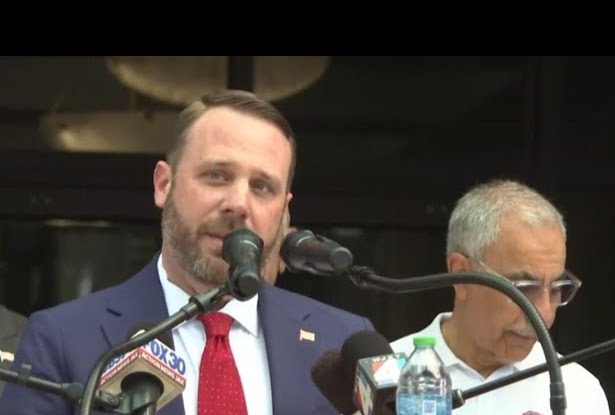Jacksonville Council President Defends $13 Million in Tax Cuts While Mayor Warns of Risks to Housing and Health Programs
The debate over Jacksonville’s city budget intensified this week as council leaders and the mayor clashed over how taxpayer money should be spent. At the center of the dispute is a proposal to cut more than $13 million from the mayor’s budget, redirecting those dollars back to residents while sparking concerns about funding for essential programs.
Council President Stands Firm on Giving Money Back
City Council President Kevin Carrico emphasized that taxpayers deserve relief, not flat spending or increases.
“We shouldn’t be discussing any increases. We shouldn’t be discussing keeping it flat. We should be discussing giving those dollars back,” Carrico said. He stressed that the budget plan represents a push to return money directly to the citizens.
Carrico underscored that the cuts do not jeopardize what he calls “essential services,” which he defines as public safety, police, fire protection, and infrastructure maintenance.
“Our essential services are public safety first and foremost. That’s our responsibility as government. We can’t have potholes the size of Volkswagens. Anything that is safety, that’s essential,” he said.
Mayor Raises Concerns Over Critical Services
Mayor Donna Deegan strongly opposed the cuts, calling them a political move. She questioned whether citizens were truly being put first in the process.
“Where is the citizen in all this? Where is putting our citizens first in that?” she asked.
Deegan warned that the budget reductions could jeopardize programs addressing affordable housing and health care access — issues residents frequently raise as top priorities.
“We hear constantly from citizens about housing costs being out of control and unaffordable. Every time we don’t invest in these areas, it hurts our economy and it hurts our city,” Deegan said.
Divisions Over Social Programs
The debate extended beyond housing into broader social services. City Council Vice President Nick Howland dismissed government-funded programs as “waste,” arguing that excessive spending only deepens dependency.
“Governments think taking your money will solve society’s ills like affordable housing, hunger, hospital bills, free roofs, and down payment assistance,” Howland said.
Finance Committee Chair Raul Arias echoed the sentiment, pointing to the need for “real relief” for taxpayers rather than continued funding of social initiatives.
Health Programs and Senior Services at Risk
Among the programs facing potential elimination are Healthlink JAX, Project Save Lives, and Dental Care Access, all of which provide essential health services for uninsured residents. Community groups report growing demand for these services, even as their funding remains uncertain.
One bright spot came when the Finance Committee agreed to restore $1.7 million in funding for Meals on Wheels, which had initially been targeted for cuts. Deegan, however, said she would like to see the program fully funded, arguing that food insecurity among seniors remains a pressing issue.
Carrico responded by suggesting nonprofits could play a greater role in supporting such efforts through philanthropic partnerships.
Property Tax Rollback
The proposal includes a property tax reduction of one-eighth of a mill. For a home valued at $200,000, that means annual savings of about $25.
Deegan criticized the measure as “fiscally irresponsible,” arguing that the small savings for homeowners would come at the cost of programs that address housing affordability and senior needs.
“The average homeowner will get about a dollar a month. But what does that mean for seniors who need meals or for residents who need affordable housing? All the money is gone for that right now,” Deegan said.
Residents React
Opinions among residents were divided. Some felt that even modest tax cuts put important dollars back into taxpayers’ hands, while others valued continued investment in city programs.
“I think services are more important,” said homeowner Kiara Green. “Even as a homebuyer, the greater good matters more.”
Others questioned whether downtown residents benefit more than neighborhoods outside the core city, such as the beach communities.
Cutting Perks and Stadium Tickets
Beyond programs and taxes, the Finance Committee also approved reductions to city expenses, including slashing lobbyist fees, trimming mayor’s office salaries by more than $400,000, and cutting travel and ticket perks for elected officials.
One symbolic move ended a 30-year tradition of the city maintaining a suite at EverBank Stadium, with more than $38,000 in funding eliminated.
What Happens Next
The full City Council will take up the budget in September. Deegan expressed hope that the council will restore funding to critical services.
“It’s my hope that we’ll have less performers and more statesmen as the budget moves forward. People across the city are hurting while millions of dollars are being cut from programs that address housing, health care, and homelessness. I look forward to a balanced discussion with all 19 council members,” Deegan said.

COMMENTS (0)
Sign in to join the conversation
LOGIN TO COMMENT